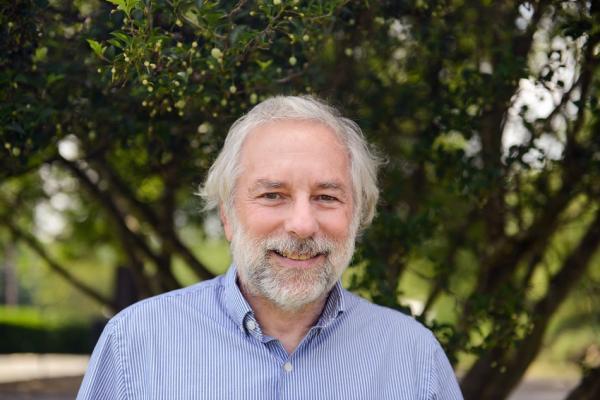
Checking in with FPG’s Associate Director of Research
Ronald Seifer, PhD, joined the UNC Frank Porter Graham Child Development Institute (FPG) as associate director for research in December 2019, just months before Covid-19 upended the world. As a developmental psychologist, Seifer focuses his research on studying individuals in person, something that has been difficult during the pandemic. Yet Seifer and his colleagues have adapted and continued their research to improve the lives of young children and their families. “Ironically, conducting research in both North Carolina and Rhode Island has been easier in some respects,” says Seifer, “as everyone has adapted to remote interactions during the COVID pandemic.”
As an investigator on an examination of DNA methylation in maltreated children, Seifer is examining psychiatric and health outcomes on very high-risk, maltreated, and non-maltreated children. The longitudinal design enables researchers to consider the prospective development and onset of health conditions following maltreatment, and the potential role of methylation in the emergence of these conditions. Prior to the pandemic, most of the data for this study was collected in summer camps with children whom the researchers had followed for years. Since COVID prevented the camps from taking place in the summers of 2020 and 2021, it was challenging to collect data, some of which had also been collected during home visits. The pandemic also made home visits tricky, given the importance of maintaining social distancing and protecting families and researchers, as well as constantly changing safety parameters.
Rather than halt the study, Seifer and his colleagues collected data measurements during home visits—which sometimes transitioned into visits on the street in front of the homes—rather than in camp settings. “The kind of work we do has error measurement built into it to begin with and this just adds to that error measurement,” says Seifer. “We're used to dealing with this issue and now it's just a larger issue than is typical.”
Seifer’s research agenda also includes collaborating with the Rhode Island Asthma Integrated Response Program, a comprehensive system of identification, screening, and intervention for pediatric asthma, another study that has faced challenges in data collection and identifying sample subjects. Prior to the pandemic, the study’s asthma prevention interventions took place in children’s homes and schools and most children were recruited through hospital emergency departments. This team converted their efforts to the virtual realm to ensure continuity of the project.
Seifer and FPG colleague Noreen Yazejian, PhD, serve as co-principal investigators on a research-policy and practice collaboration led by Sandra Soliday Hong, PhD, who heads FPG’s policy division. This project collaborates with the North Carolina Department of Health and Human Service’s Division of Child Development and Early Education (DCDEE) providing expertise in research and analysis. By working with DCDEE to produce policy papers and resources that explain, as completely and simply as possible, the details of very complicated issues regarding early childhood care and education, FPG helps the division communicate with stakeholders in the community and government regarding the impact of policy decisions.
Expanding the ways that FPG researchers translate their work into formats that are useful for policymakers is one of Seifer’s passions. “The research-practice-policy continuum and the collaboration between basic researchers and people who are doing implementations that result from our work conspire to help our work be of more consequence for practice and policy,” he says. “As researchers and practitioners, we want to help other people implement the products of our research.”
While Seifer is directly involved in diverse research projects, he also serves as an administrator at FPG, with a focus on facilitating more collaboration within the Institute. He cites the example of behavioral researchers studying child development and technical assistance researchers creating national standards for TA and implementation supports. By leveraging the skills and talents of FPG investigators exploring and partnering on similar issues, Seifer sees opportunity to make the research more meaningful for communities and more broadly useful. This type of collaboration, a part of the Institute’s strategic plan, is expanding within FPG, as researchers actively discuss joint projects and intermingle resources and staff.
The Institute’s strategic plan also focuses on addressing issues of equity and inclusion, with Seifer and his colleagues working on expanding the diversity of their workforce, study subjects, and research methods. He is excited to see his colleagues at FPG incorporating diversity more intentionally and thoughtfully in their research efforts so that findings can spur improvements in practice. “We want to continue getting better from the lens of equity and community engagement,” says Seifer. “And we want our research to have increasing meaning and impact in the larger community.”
